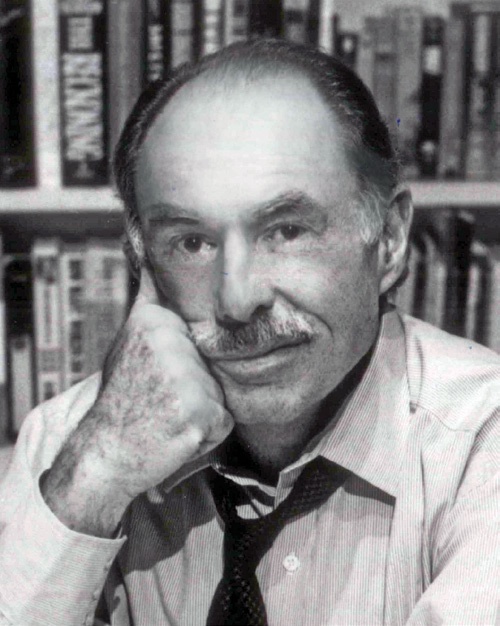Columbia College | Columbia University in the City of New York
Lawrence K. Grossman ’52, Head of PBS and NBC News

Lawrence K. Grossman ’52
JERRY BAUER/VIKING
Grossman was born Lawrence Kugelmass on June 21, 1931, in Brooklyn, N.Y. After his father died, he was adopted by his mother’s second husband, Nathan Grossman. He attended Midwood H.S., where a journalism teacher opened his mind to the world of communications. At the College, he studied English and political science, then went on to Harvard Law, where he met his future wife, Alberta “Boots” Nevler, who was attending Radcliffe.
Grossman left Harvard after a year and joined Look magazine in the promotions department. He joined the advertising department at CBS in 1956, then moved to NBC in 1962, becoming the network’s VP of advertising. There, he met Grant Tinker, who was then in programming (nearly two decades later, their friendship led Tinker to consider only Grossman for the presidency of NBC News). Grossman ran his own advertising, marketing and communications firm from 1966 to 1976.
PBS, one of his firm’s clients, hired him as its president in 1976, and he moved to Washington, D.C. Grossman transformed PBS over eight years — the network became the first to deliver its programming by satellite; he introduced the programs Live From Lincoln Center and concerts from the White House and the Kennedy Center, and approved production of a 13-part series on the Vietnam War; and in 1983, doubled the length of the network’s signature news program, The MacNeil/Lehrer Report (now PBS NewsHour).
In 1980, Grossman refused to bow to pressure that PBS not air Death of a Princess. Mobil Oil, a major PBS underwriter, was among the movie’s protesters. Some members of Congress spoke out. And Warren M. Christopher, the Secretary of State, relayed a letter of concern from the Saudi Ambassador to the United States. Grossman’s stance “was the single most important thing he did at PBS,” Richard Wald ’52, GSAS’53, now the Fred W. Friendly Professor Emeritus of Professional Practice in Media and Society and special lecturer in journalism at the Journalism School and a former NBC News president, told The New York Times. “He created a sense in PBS that they were doing important work, and it caused PBS to stand up straighter. It was enormously important to how PBS conducted itself thereafter.”
Grossman was hired by NBC in late 1983, and after General Electric’s acquisition of RCA, NBC’s parent company, in 1986, he fell out of favor with his new bosses. He was dismissed in 1988.
After leaving NBC, Grossman taught at Harvard’s John F. Kennedy School of Government and in 1993 became president of Horizons TV, a onetime challenger to PBS and C-SPAN. He wrote The Electronic Republic: Reshaping Democracy in the Information Age (1995), about how interactive telecommunications of that era — faxed petitions, email lobbying and 900-number polls — were providing citizens with more direct participation in politics and making them the “new fourth estate.” In the late 1990s, he and former PBS chairman Newton Minow launched Digital Promise, a nonprofit that receives federal and private funding to use digital technologies to improve education.
Grossman is survived by his wife; daughters, Susan Grossman NU’78, Caroline Grossman and Jennifer Grossman Peltz; brother, Daniel; six grandchildren, including Sarah Grossman-Greene ’08; and two great-grandchildren.
— Lisa Palladino
Issue Contents
Published three times a year by Columbia College for alumni, students, faculty, parents and friends.
Columbia Alumni Center
622 W. 113th St., MC 4530, 6th Fl.
New York, NY 10025
212-851-7852
cct@columbia.edu
Columbia Alumni Center
622 W. 113th St., MC 4530, 4th Fl.
New York, NY 10025
212-851-7488
ccalumni@columbia.edu

